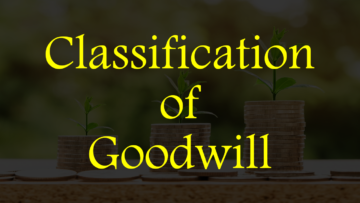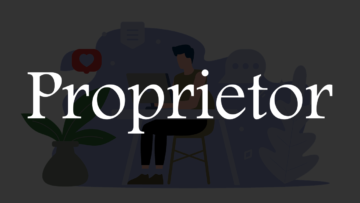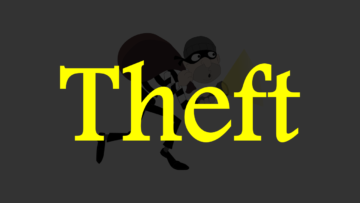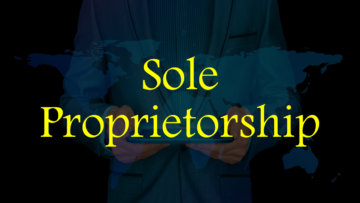Goodwill is the reputation and asset of business, and it is earned by the business by providing quality, quantity, services, etc. to the customers. Goodwill helps businesses to connect and retain customers as it shows the image of the business in the market. Goodwill also helps in differentiating businesses from each other, even if the businesses are similar in nature to each other. The more goodwill a business has, the more consumers it can attract.
To better understand goodwill and evaluate it better, experts have divided it into several parts like accounting classification, zoological classification, etc. If a layman looks at Goodwill, he won’t notice much difference, but if an expert takes a look, he might notice the difference. Any business should be aware of its goodwill before doing anything because doing anything without knowing can have a direct impact on the business.

Table of Contents
Classification of Goodwill
Goodwill is classified into two parts:
| Accounting Classification | Zoological classification |
| – Purchased Goodwill – Self-generated goodwill | – Cat Goodwill – Dog Goodwill – Rat Goodwill – Rabbit Goodwill |
Accounting Classification
On the basis of accounting, goodwill is classified into two parts:
1. Purchased Goodwill:
Purchased goodwill means goodwill derived from purchases. This goodwill is derived when a business buys (acquire) another business at a price higher than it’s worth. The business does not have to work hard to create this goodwill because the old business has already created it, but the business has to work hard to maintain this goodwill in the future also. This goodwill is shown on the asset side on the balance sheet of the business.
Generally, a business that has good goodwill in the market, another business tries to acquire (buy) the business because it is difficult to build goodwill from the beginning.
2. Self-generated goodwill:
Self-generated goodwill means goodwill generated by the business itself and is the most common type of goodwill. This goodwill is generated by providing quality products, services, quantity, etc. to the customers. It takes a lot of time to build this type of goodwill because winning customer’s trust and building a reputation in the market is a time-consuming process but sometimes it is the exception.
Self-generated goodwill is considered to be the best goodwill because it is generated by the business from the beginning, and it helps in adding new customers and retaining the old customers for a longer period of time.
Zoological classification
On the basis of zoological, goodwill is classified into four parts:
1. Cat Goodwill:
The cat goodwill represents the relationship between the brand/business and customers. In this goodwill, customers do not connect with the management, they connect only with the brand. As the reputation of the brand grows, so does this goodwill. Cat Goodwill is considered to be the best Goodwill because the customers are attached to the brand, and they do not care who is managing the brand.
| Cat goodwill means the goodwill that is created by the relationship between the brand/business and customers. |
This goodwill is named cat goodwill because the psychology of the cat is believed to be that it has an attachment to the place, and it does not matter who the owner is.
2. Dog Goodwill:
Dog goodwill represents the relationship between the person running the business and the customers. This goodwill grows along with the reputation of the person running the business. In this goodwill, customers do not connect with the brand/business, they connect only with the person running the business. In this goodwill, if something happens to the person running the business, it is more affected because the customer is attached to the person and not the brand.
| Dog goodwill means the goodwill that is created by the relationship between the person running the business and the customers. |
This goodwill is named dog goodwill because the psychology of the dog is believed to be that it has an attachment to the person and does not care about the place.
3. Rat Goodwill:
Rat Goodwill does not represent a relationship between anyone because in this customer does not connect with a brand and a person. In this goodwill, the customer does not care what the brand is and who is running the brand, they are only concerned with the product, and this goodwill is created automatically.
| Rat goodwill means the goodwill that is created through the products and not through the business, the brand, and the person running the business. |
This goodwill is named rat goodwill because the psychology of the rat is believed to be that it does not care about the person and place, it is only concerned with the product.
4. Rabbit Goodwill:
Rabbit Goodwill also does not represent any relationship as consumers prefer the nearest business. This goodwill is created by customers living near to the business who do not want to travel far to shop. The value of this goodwill may be less than other goodwill because its scope is limited.
| Rabbit Goodwill means the goodwill that is created through the nearest customers who do not want to go far for shopping. |
This goodwill is named rabbit goodwill because the psychology of the rabbit is believed to be that it does not want to go away from its place or is afraid of going away.
Reas Also:
QNA/FAQ
Q1. Goodwill is classified into how many parts?
Ans: Goodwill is classified into two parts:
1. Accounting Classification
2. Zoological classification
Q2. Goodwill is classified into how many parts on the basis of accounting?
Ans: On the basis of accounting, goodwill is classified into two parts:
1. Purchased Goodwill
2. Self-generated goodwill
Q3. Does goodwill play an important role in business?
Ans: Yes, goodwill plays an important role in business because goodwill helps in the growth of business.
Q4. Is it easy to earn self-generated goodwill?
Ans: No, self-generated goodwill is not easy to earn as it requires hard work.
Q5. On the basis of zoological, goodwill has been classified into how many parts?
Ans: On the basis of zoological, goodwill is classified into four parts:
1. Cat Goodwill
2. Dog Goodwill
3. Rat Goodwill
4. Rabbit Goodwill













